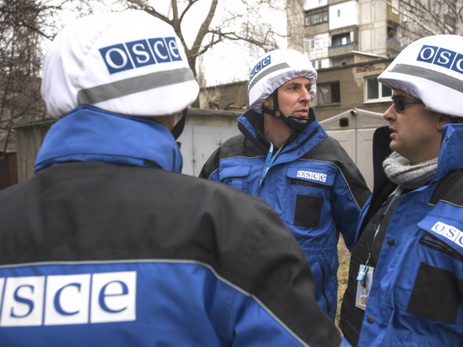Why the OSCE Keeps Failing to Make Peace in Nagorno-Karabakh - The National Interest

The lack of interest and consequent lack of commitment on the part of the OSCE Minsk Group co-chair countries to the resolution process is another visible setback. The co-chairs seem to be dealing much more with “conflict management”—trying to reduce the tensions between parties via occasional visits to region—than with a “conflict resolution mechanism”.
The Minsk group has monopolized the resolution process of the conflict, but lacks the needed commitment to push the process forward. This lack of commitment is also seen in the form of the low level of involvement by co-chair countries in the resolution process.
The involvement of more mid- or high-level diplomats and politicians might prove effective in accelerating the peace process. Talks that carry high-level international commitment—such as the 2001 Key West negotiations, which involved the US president George Bush—might be a necessary change, given that this low-profile shuttle diplomacy seems to be failing.
History shows that when major powers are interested and committed, they are able to facilitate effective negotiations to find a solution to the complex conflicts similar to Nagorno-Karabakh. To give comparable examples, during the bloody dissolution of Yugoslavia, the U.S. commitment and appointment of a special representative was key in hammering out the 1995 Dayton Agreement, while French president Jacques Chirac’s personal involvement played the same role in reaching the 1999 Rambouillet Accords.
Moreover, if in the beginning OSCE involvement as a mediator was intended to represent impartial international involvement, today the OSCE Minsk Group’s approach is a troika-based approach rather than a genuine and inclusive OSCE approach.
The OSCE seems to have little influence over the Minsk Group; three chair states are in a full control of the process. On top of that, the three members of troika have their own divergent positions on the peace process, which further hampers the prospect of successful negotiations. Russia has frequently sought to dominate the process, while the United States increased its attention when its stakes rose in the South Caucasus.
Moreover, the domestic considerations of these three countries also play a certain role in their approach to the peace process and conflict parties. The three co-chair countries are home to the largest, wealthiest and best-organized Armenian diasporas.
For instance, at the beginning of the 1990s, the Armenian lobby managed to block U.S. financial support to Azerbaijan under the “Freedom Support Act” (FSA) program; in addition, the US ambassadorial nominee to Azerbaijan in 2010 was blocked by influential senators representing U.S. states with powerful Armenian communities. It should also be noted that Moscow is Yerevan’s closest strategic ally, and Armenia is frequently claimed to have de facto protectorate-metropolis relations with Russia.
In fact, the members of Minsk Group troika represent the key global power centers (assuming France’s informal representation of the EU).
Thus, if willing, it has the necessary geopolitical weight to pressure the aggressor to compromise, which would eventually bring about a long-awaited and greatly overdue breakthrough in the peace process. However, again, the problem is not one of capacity, but one of political will.
Azad Garibov is a Leading Research Fellow at the SAM Center for Strategic Studies in Baku and Editor-in-Chief of Istanbul-based quarterly academic journal ‘Caucasus International.’














